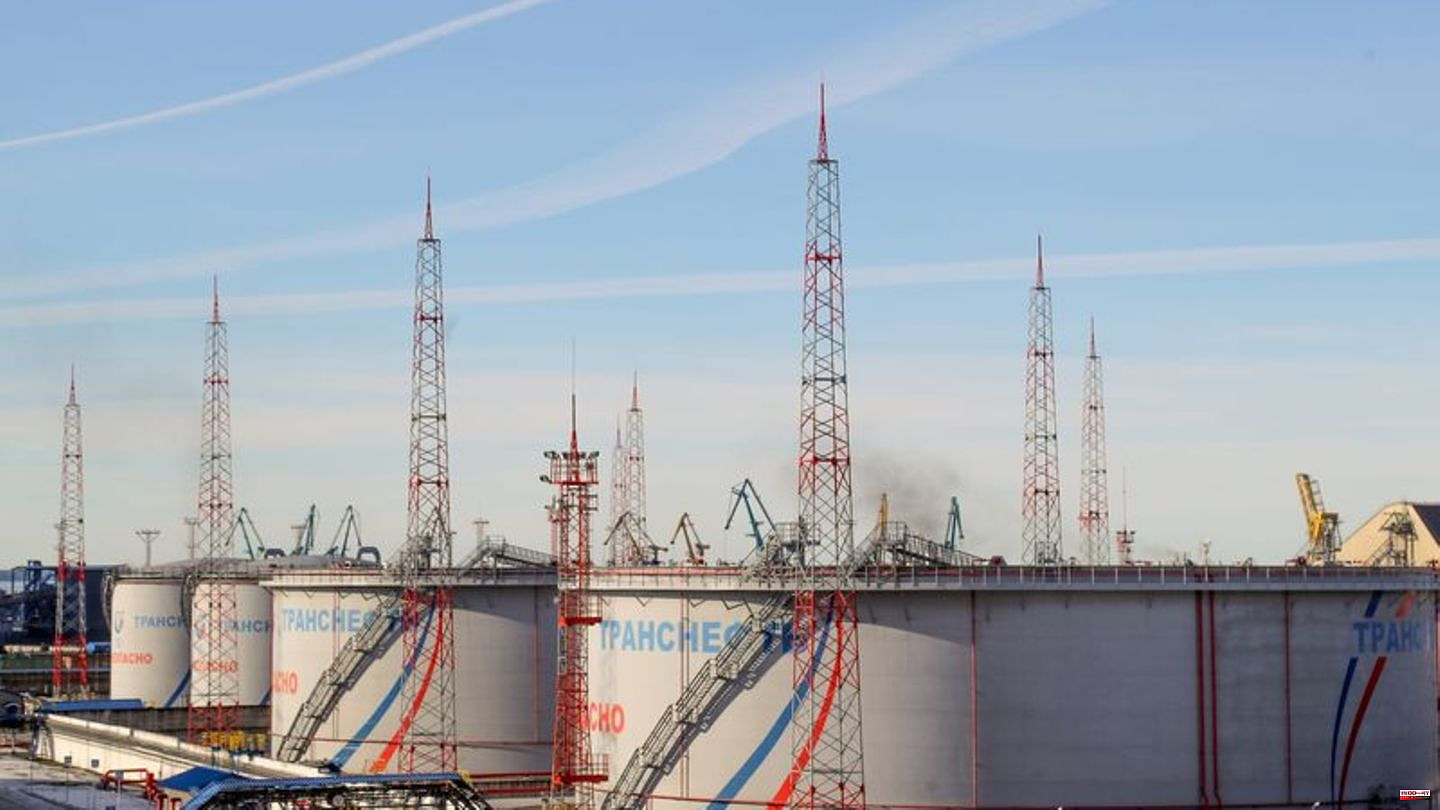The EU, together with international partners, wants to force Russia to sell oil below the market price to buyers in other countries. An agreement reached by government representatives provides for an initial price cap of 60 US dollars per barrel, as confirmed by Estonian Prime Minister Kaja Kallas in the evening.
The price of around EUR 57 per 159 liters would then be up to EUR 9 below the most recent market price for Russian Urals crude oil. According to the plans, it will apply from Monday.
In order to enforce the price cap, it should be regulated that in future important services for Russian oil exports may only be provided with impunity if the price of the exported oil does not exceed the price cap. Western shipping companies could use their ships to continue transporting Russian oil to third countries such as India. The regulation should also apply to other important services such as insurance, technical assistance and financing and brokerage services.
The hope is that the price ceiling will ease the tension on the energy markets and relieve third countries. In addition, it should also ensure that Russia no longer benefits from rising oil prices and can thus fill its war chest.
Moscow criticizes oil price cap
According to Leonid Slutsky, a prominent Russian foreign policy expert and member of the Duma, the European Union is endangering its energy security by capping Russian oil prices. In addition, the EU is also violating market laws, as the state agency TASS reported on Slutski's reaction on Friday. "The EU is endangering its own energy security. They didn't put a lid on it, they broke the bottom again." And all this to "satisfy the ambitions of overseas partners," said Slutsky, referring to the United States. "But the Europeans cannot expect any help from there." Slutsky heads the Foreign Affairs Committee in the State Duma.
Regular review of the price cap
In order to be able to react to market developments, the plans envisage reviewing the price cap every two months. It should always be at least five percent below an average price determined by the International Energy Agency (IEA). In addition to the EU, countries such as the USA, Great Britain, Canada, Japan and Australia are involved in the project.
The price cap is intended to complement the oil embargo against Russia that the EU decided in June. Among other things, this provides for a ban on the purchase, import or forwarding of crude oil and certain petroleum products from Russia to the EU. The restrictions apply from December 5 for crude oil and from February 5, 2023 for other petroleum products. However, there are some exceptions, for example for Hungary.
The member states made the fundamental decision to introduce a price cap for Russian oil in October - after the group of leading Western industrialized nations (G7) had launched a corresponding initiative.
Negotiations are proving difficult
Recently, however, the negotiations on the specific upper price limit turned out to be more difficult than expected. During the talks, Poland, initially with the support of the Baltic states, called for a price cap of under $30 per barrel to be set and thus to remain at the estimated production costs of $20 to $40 per barrel. The government in Warsaw was supported by Ukraine. President Volodymyr Zelenskyj said last week that a price of up to $30 would be possible.
However, countries such as Greece and Malta were particularly opposed to such a low price limit. They fear that setting the price limit too low could cause shipping companies based in their countries to go bankrupt because Russia could refuse to sell its crude oil at a very low price. A Russian refusal to submit to the coercive regime could also trigger turbulence and price increases on the international markets.
After the agreement in Brussels, Estonia's Prime Minister Kallas announced that part of the deal would also be the rapid adoption of a ninth package with other sanctions against Russia. According to EU officials, there should already be new coordination talks at the weekend.







